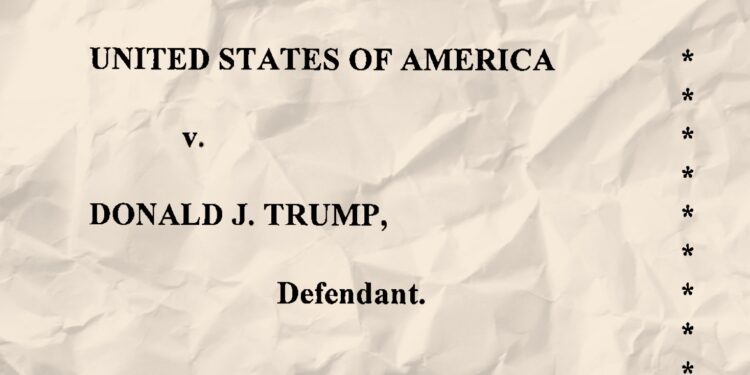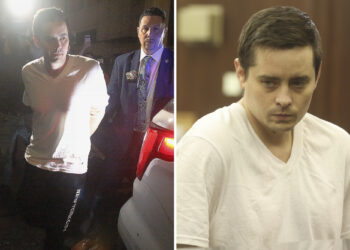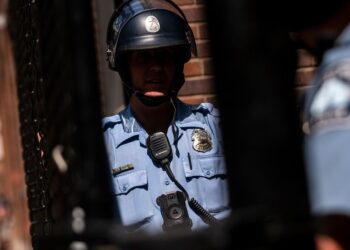In court filings submitted on November 3, prosecutors for the Justice Department opposed the effort to allow cameras in the courthouse and televising of the trial of Donald Trump, the former president and leading GOP contender for the 2024 Republican nomination because the public interest does not override the legal concerns underlying Rule 53 of the Federal Rules of Criminal Procedure. In political terms, the DOJ did not want the “historic trial of a former president [to be] the first-time federal courts allow TV cameras to broadcast or record a criminal trial.”
If not this unprecedented trial of a former president to steal an election that he had clearly lost, then which other possible trial could ever overturn this archaic federal rule? What was the DOJ possibly thinking other than it might cause a delay in the commencement of the trial?
U.S. District Judge Tanya Chutkan in October had requested that Trump and his lawyers file an opinion on whether the former president “wants to appear on television when he stands trial in federal court on charges of attempting to overturn his 2020 election defeat.”
In response to two separate filings by NBC News and a coalition of 19 media organizations and press advocacy groups who have argued that the public has a right to see this unprecedented trial and that “a federal rule barring broadcast of criminal proceedings is unconstitutional,” the judge gave the government and Trump until November 10 to file their opinions or wishes on the matter.
NBC News, in a similar vein to other media companies, argued that “Since the founding of our Nation, we have never had a criminal case where securing the public’s confidence will be more important than with United States v. Donald Trump.”
NBC continued to say that televising the trial of Trump for obstructing justice and the certification of the 2020 presidential election “presents the strongest possible circumstances for continuous public oversight of the justice system,” especially in light of Americans souring on the positive views on the FBI and the DOJ since Trump left office.
As Joyce Vance has pointedly put it, the “government fears the potential for social media to impact witness testimony and juror security. But those concerns seem misplaced, since, if the proceedings aren’t televised, Trump or others in his camp will still advance their version of them across social media, and others in the courtroom will be free to do so as well.”
Moreover, Trump and company like in the untelevised civil fraud case in New York will most likely continue to posture and misrepresent the proceedings to the press and the world, not to mention intimidating those people involved in the trial, including judicial staff, witnesses, and jurors.
While Trump and his lawyers informed the court that they were not going to file a motion on the matter of cameras in the D.C. trial that is set to begin March 4, 2024, they filed a motion late Friday evening favoring cameras.
To my surprise, the last thing I thought Trump would ever want to do was to have a trial televised if he could avoid it.
Without the trial being televised, it would have been easier for Trump to neutralize (or minimize) his false claims and lies about witch hunts and the weaponizing of the DOJ against him. On the one hand, Trump may have been thinking that since he is going to lose the trial anyway, why not try to turn his failed attempt to overturn the 2020 presidential election into a political circus-like trial as a means of his continuing his campaign to delegitimize President Biden’s “corrupt” and “weaponized” Department of Justice.
In their filing, Trump’s lawyers labeled the prosecution a “show trial,” emphasizing that “this case has all the unfortunate badges of a trial in an authoritarian regime, lacking legitimacy or due process.”
On the other hand, since the government had motioned not to televise the trial and because it was highly unlikely that trial would break with tradition, Trump, if not his lawyers, could take the “high ground” by advocating for full transparency and a public trial according to due process. Then when the ruling conformed with the status quo, Trump could spin the decision as part of the “deep state” conspiring to cover up its proceedings.
As we wait for Judge Chutkan to make her forthcoming ruling in the matter, we have already heard from Judge James C. Dever III of the U.S. District Court for the Eastern District of North Carolina, who also chairs the Judicial Conference’s advisory committee on criminal rules, that a “subcommittee would be created to consider revising the current ban on broadcasting criminal cases.” However, their recommendations to overturn the ban even if it occurred, would not take effect before 2026.
I do not think that anyone can make an argument in this day and age as to why federal criminal trials should not be televised in U.S. v Trump or any other high- or low-profile public criminal case other than that is the way the federal courts have always done it.
Hopefully, Judge Chutkan for all of the obvious reasons and especially in this unprecedented case against the former president and leading 2024 Republican candidate for the GOP presidential nomination will “do the right thing” and buck tradition that is fully within her judicial discretion or power to do so. Most legal commentators do not believe she will.
I had assumed that Chutkan would not break with tradition by deferring once again as the DOJ and judicial system has repeatedly done on behalf of the former president. However, now that Trump has argued in favor I think the odds have improved that she might allow cameras in the January 6th trial and that Special Prosecutor Jack Smith and company would not object despite their earlier position.
Lastly, unless Trump was to take the stand and testify I cannot really see how Trump could turn the trial into a circus anyway. And I cannot imagine Trump not taking his 5th Amendment right not to testify.
Gregg Barak is an emeritus professor of criminology and criminal justice at Eastern Michigan University, co-founder of the Journal of White Collar and Corporate Crime, and the author of Criminology on Trump (2022) whose sequel, Indicting the 45th President: Boss Trump, the GOP, and What We can Do About the Threat to American Democracy will be published April 1, 2024.

























